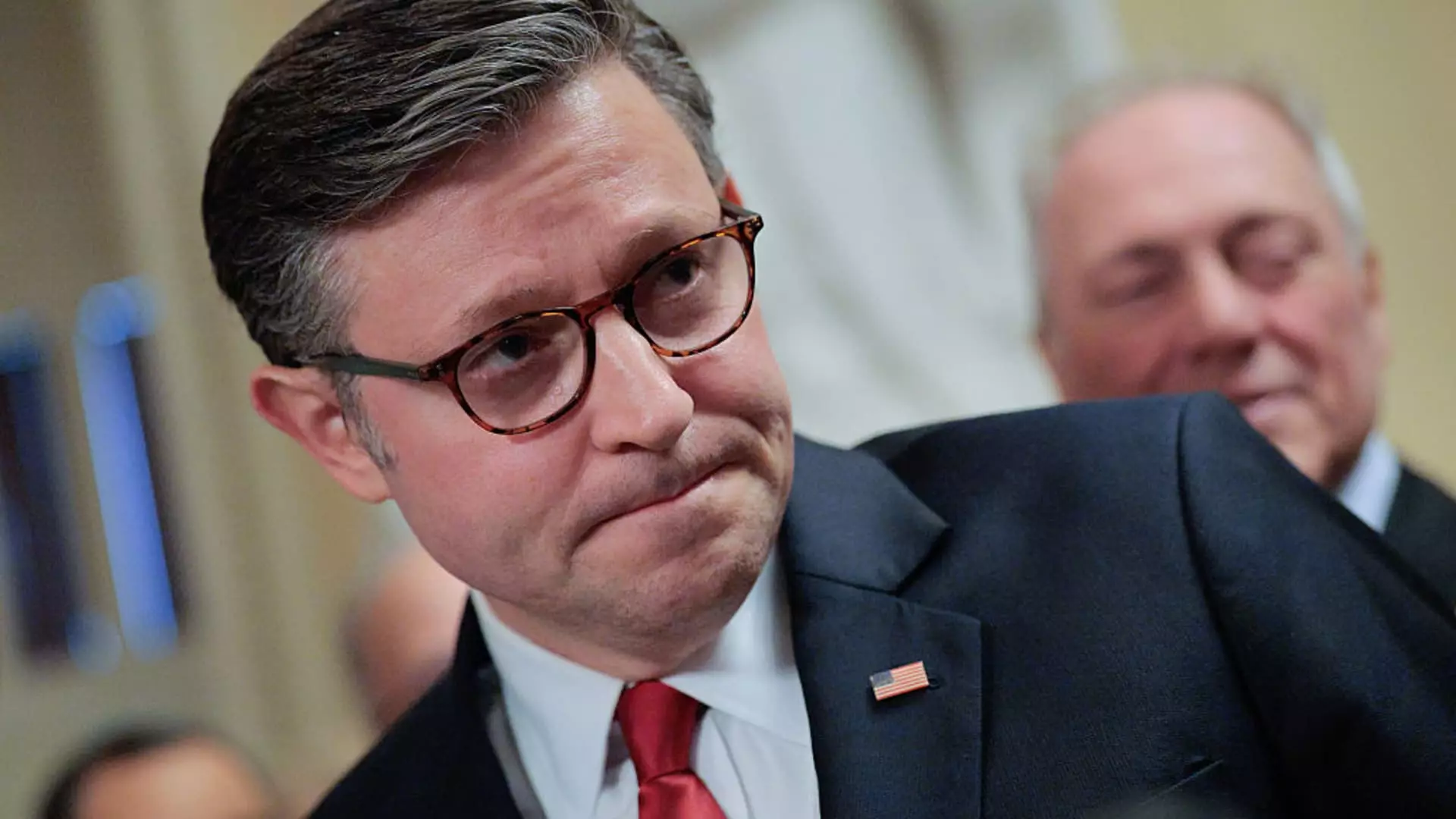The recent maneuvering within the U.S. House of Representatives exemplifies the chaos often masking true leadership. While the passage of the bill appears to be a victory for Republican strategists, it underscores a troubling reality: that partisan brinkmanship has become the norm, often at the expense of meaningful governance. The near-collapse of the vote amid internal divisions reveals a deeply fractured party, reluctant to unite behind a coherent vision. Instead of fostering consensus or engaging in problem-solving, political actors seem more committed to winning moments of spectacle. This raises fundamental questions about the efficacy of their leadership and whether their actions genuinely serve the interests of the American people or merely perpetuate a cycle of conflict.
Economic Policy or Political Pawns?
The bill’s provisions, which extend tax cuts primarily benefiting the wealthy and corporations while reducing support for low-income Americans, reflect a troubling prioritization of fiscal outcomes over social equity. The argument that these tax policies stimulate growth often rings hollow when juxtaposed with data showing stark disparities and negligible benefits for the vast majority of Americans. When billionaires stand to gain hundreds of thousands of dollars annually, and millions face cuts to crucial programs like Medicaid and nutrition assistance, the narrative shifts from fiscal responsibility to social injustice. This dynamic suggests that economic policymaking is increasingly driven by elite interests, undermining the foundational principle of shared prosperity.
The Illusion of Democratic Accountability
The process reveals glaring weaknesses in our democratic institutions. The last-minute negotiations, backroom deals, and shifting alliances point to a system where transparency is sacrificed for political convenience. The final vote, often along party lines with minimal room for genuine debate, illustrates a lack of meaningful engagement with the diverse voices across the political spectrum. Moreover, the influence of external figures like former President Donald Trump, whose open criticism and unilateral actions complicate legislative consensus, intensifies the partisan divide. Instead of generating a collective sense of purpose, these tactics reinforce a politics of division, where policy is secondary to political posturing.
The Cost of Short-Term Gains
This legislative spectacle also exposes the danger of prioritizing short-term political victories over long-term national interests. The bill’s increased debt ceiling and deeper Medicaid cuts threaten to saddle future generations with unforeseen burdens. The delicate balance of economic stability is being manipulated to secure immediate wins, often at the expense of sustainable growth and social cohesion. The decision to extend tax cuts for the wealthy while slashing programs that serve the most vulnerable demonstrates a deeply flawed prioritization — one that favors the wealthy elite’s interests and disregards the social contract that underpins a fair society.
Reshaping the Political Landscape
A nuanced, centrist approach to governance demands acknowledging the complex realities of our economic and social fabric. It requires a willingness to challenge the entrenched interests that favor deregulation, tax loopholes, and austerity measures. Politicians must prioritize transparency, accountability, and policies that promote equitable growth rather than spectacle-driven victories. Real leadership calls for compromise rooted in empathy and a commitment to making the economy work for all, not just the few. The current trajectory, however, suggests continued polarization and policy paralysis unless a meaningful shift occurs.
In the end, the political drama unfolding in the halls of Congress is less a reflection of leadership and more a symptom of systemic failure. A true reform agenda would focus on restructuring incentives and empowering lawmakers to act in the public’s best interest, fostering an environment where progress is driven by purpose rather than political expediency. Until then, the American people will remain spectators to a spectacle that often undermines the very foundations of democracy and social justice.


Leave a Reply